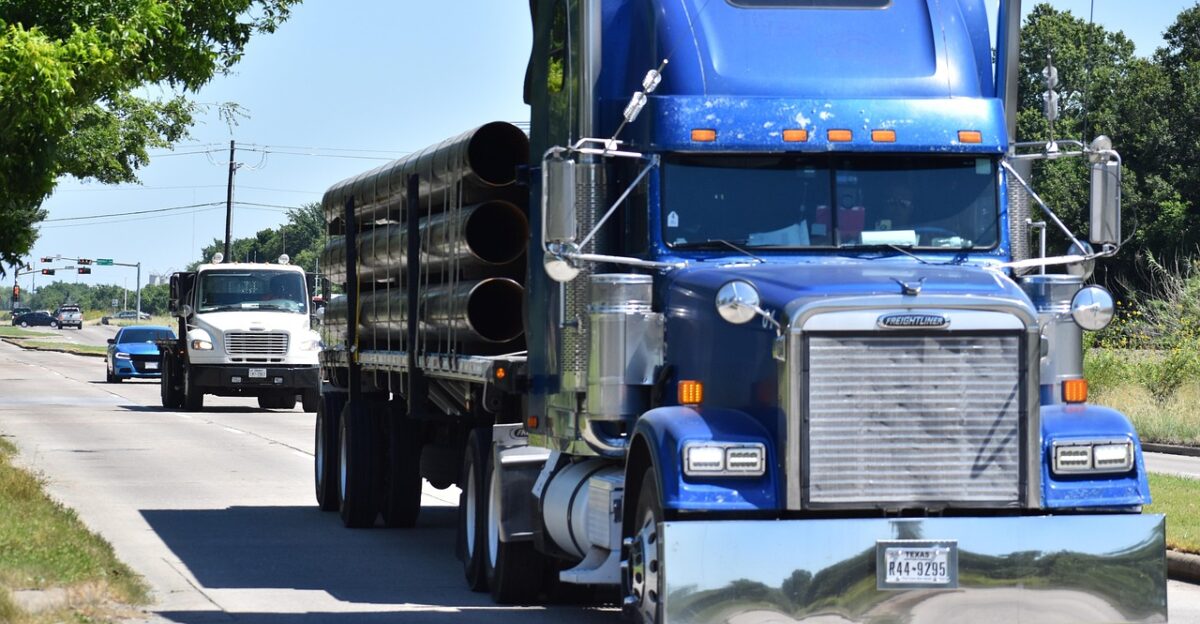
Federal immigration authorities have conducted a major enforcement sweep in Indiana, arresting 223 undocumented individuals, including 146 commercial vehicle drivers.
The operation, described as a targeted enforcement action, signals expanded regulatory enforcement addressing immigration compliance and public safety concerns related to unlicensed drivers. Officials emphasize that this represents part of a broader national enforcement strategy.
Enforcement Surge

Indiana’s partnership with ICE has expanded significantly, now involving 14 formal agreements and over 200 officers trained in a joint task force model. This surge in enforcement follows concerns about English language proficiency and commercial driver licensing standards among undocumented individuals.
Governor Mike Braun emphasized, “The safety of our state is our top priority,” as joint enforcement operations intensified across major interstates.
Crossroads of America

Indiana’s central location and extensive interstate network make it a major freight corridor, earning it the nickname “Crossroads of America.” Millions of pounds of goods move through the state daily, increasing the focus on regulatory oversight.
State officials note that this geographic reality means undocumented drivers pass through the state at higher rates per square mile than in other states.
Mounting Pressures

The trucking industry faces growing pressure from federal and state regulators regarding immigration compliance. Recent enforcement efforts have focused on commercial driver licensing, English proficiency requirements, and criminal background checks.
The Trump administration’s expansion of joint federal-state immigration enforcement has led to more frequent operations targeting unlicensed commercial drivers.
October Operation Results

On October 30, 2025, DHS announced results from a joint ICE and Indiana State Police operation near the Illinois border. The operation led to the arrest of 223 undocumented individuals, including 146 commercial vehicle drivers.
Of those 146 drivers, 46 operated Class 8 semi-trucks, while 100 drove box trucks, delivery vans, buses, and other commercial vehicles. Homeland Security Secretary Kristi Noem stated, “Your days are numbered” regarding undocumented individuals driving illegally.
Criminal Records and Public Safety

The arrested individuals showed serious criminal backgrounds. DHS reported that detainees faced charges and convictions including driving under the influence, assault, child abuse, burglary, drug trafficking, theft, domestic violence, and fraud.
Officials cited public safety as the primary rationale, noting that operation-related arrests removed dangerous drivers from highways.
Immediate Consequences

For the 146 drivers arrested, immediate consequences included detention proceedings and potential deportation. Many have families and communities affected by their removal from employment.
“An 80,000-pound truck in untrained hands is a dangerous thing,” said Indiana State Police Superintendent Anthony Scott, emphasizing the public safety rationale for the enforcement action.
Licensing and Jurisdiction

Commercial driver licenses held by the arrested individuals originated from multiple states, particularly California, Illinois, and New York—jurisdictions identified as having sanctuary policies.
Noem noted that CDLs were issued from “over a dozen states,” with many individuals licensed in sanctuary jurisdictions despite concerns about English language proficiency and immigration status documentation. This licensing pattern prompted federal scrutiny.
National Trend

Indiana’s operation is part of a broader national enforcement trend. In recent months, ICE has conducted similar operations in Oklahoma and other states, leading to comparable arrests of undocumented commercial drivers.
Earlier in October, an Oklahoma operation resulted in approximately 130 arrests of undocumented truck drivers. The Department of Transportation also strengthened English language proficiency requirements for commercial drivers, citing public safety concerns.
Economic and Industry Response

The enforcement action has prompted industry discussions about compliance and hiring practices.
Some trucking companies report undertaking additional verification and training measures to ensure workforce compliance with licensing and immigration requirements. Industry advocates note that the operation affects a small percentage of the overall trucking workforce.
Industry Perspective

Trucking associations and fleet owners have acknowledged concerns about undocumented drivers while emphasizing that the vast majority of drivers comply with applicable laws.
Indiana State Police Superintendent Anthony Scott noted, “It is also important to protect the overwhelming majority of lawful truckers and trucking companies who follow the rules and keep our roads safe for every motorist.”
Leadership Response

State and federal leaders have emphasized their commitment to continued enforcement of immigration and commercial driver standards.
Governor Braun and Secretary Noem have publicly supported the operation, citing public safety and the need to ensure only properly licensed, legally present individuals operate commercial vehicles.
Regulatory Focus

The enforcement action reflects intensified scrutiny on commercial driver licensing and English language proficiency.
State troopers and motor carrier enforcement officers continue to conduct routine inspections—approximately 1.5 million commercial vehicle weigh-ins or inspections annually—with a heightened focus on immigration compliance and proper documentation.
Expert Analysis

Transportation and immigration policy experts have offered varying assessments of the enforcement operation’s long-term impact.
Supporters argue it will improve highway safety and compliance standards, while others note concerns about operational impacts on the commercial transportation industry and potential driver shortages in certain regions.
What’s Next?

As federal and state enforcement partnerships expand, the commercial transportation industry continues adapting to stricter enforcement standards for immigration compliance and driver qualifications. Federal officials have indicated that similar operations may continue in other states as part of the broader enforcement initiative.


